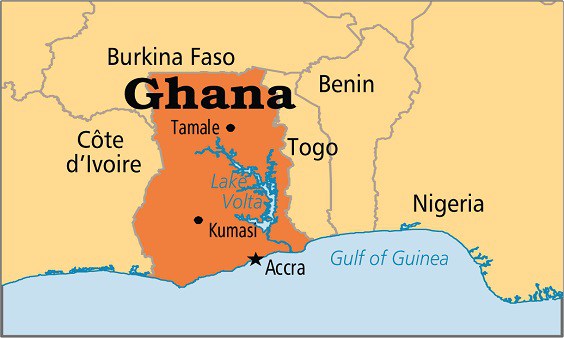
The dubious economic case for creating new regions
In fulfillment of his campaign promise of creating six new regions or facilitating the process for the possible creation of six regions, President Nana Addo Dankwa Akufo-Addo, created the position of minister of regional re-organization and development and, in accordance with article 5(2) of the Constitution, he also "appointed a commission of inquiry to inquire into the demand and to make recommendations on all the factors involved in the creation, alteration" of the new regions. The Commission -- chaired by Justice Stephen Brobbey, a retired Supreme Court judge -- is soliciting the views of the general public.
Proposals to split regions in Ghana are not new. During his vetting in parliament, Dan Botwe, the minister of regional re-organization and development, said that the NDC proposed five new regions while the NPP proposed four new regions. He referred to this as “a meeting of minds” by the two major parties. He also said that the creation of new regions will accelerate development and address poverty. According to him, a new region will get a Regional Coordinating Council, a key development agent of the state. The chiefs of the new region will get a regional house of chiefs so they can better influence development. Several state institutions will be created - Police, Fire Service, health posts. All these will generate jobs and enhance development, according to Dan Botwe.
Dr. Archibald Letsa, Volta Regional minister, echoed the sentiments of Dan Botwe when he said that the creation of the Oti Region in the Volta Region was necessary because “Volta Region’s length was such that it bordered a number of regions in the north to the south, thereby making it difficult for those in the northern part of the region to have access to the regional capital and its institutions of state.”
The arguments by Dan Botwe, Archibald Letsa, and other like-minded Ghanaians are based on dubious economic analysis and are not informed by any evidence, not even anecdotal evidence. Splitting a region is a waste of resources and is not necessary for the development of the region. Is there any evidence that the smaller the size of a region, the higher the level of prosperity or the lower is the incidence of poverty in that region? The answer is no. There is no such evidence in Ghana or any country.
In Canada, the provinces (regions) of Newfoundland, Prince Edward Island, Nova Scotia, and New Brunswick are in the bottom 4 (the smallest) in terms of landmass. Yet, three of them (i.e., Prince Edward Island, Nova Scotia, and New Brunswick) have the lowest per capita GDPs.
In Ghana, the regions of Brong Ahafo, Ashanti, and Western are in the top 4 regions (the largest) by landmass. Yet, they are also in the top 5 regions with the lowest incidence of poverty while Cape Coast and Upper East which belong to the bottom 3 regions by landmass also belong to the top 5 regions with the highest incidence of poverty. In terms of landmass, Greater Accra is the smallest region. However, no Ghanaian of sound mind will accept the proposition that Greater Accra is the most developed region because of its small land mass. More resources have been allocated to Greater Accra Region because the capital city of Ghana is in the Greater Accra region. The Northern region, the biggest region by landmass, is not one of the poorest regions in Ghana because of its size. Clearly, if we want to reduce poverty or accelerate the pace of development in a region, we have to look at something else, not landmass. We have to look at resource flows to the region and endowments (natural resources) of the region.
Dan Botwe said a new region comes with "Police, Fire Service, health posts which will generate jobs and enhance development". In effect, a new region will get more resources. However, a president, through the budget, can allocate more resources to a region without splitting the region. Furthermore, the variables used in calculating allocations to districts (from the District Assemblies Common Fund) include, among others, population; health facilities; population/doctor; population/nurse; education facilities; pupils/teacher; water coverage; tarred Roads mileage; dilapidated Schools; revenue per capita, population density, etc. Therefore, more resources (including bureaucrats and other personnel) can be allocated to poorer districts without splitting regions.
If, according to the Volta Regional minister, it is difficult for “… those in the northern part of the region to have access to the regional capital and its institutions of state”, then the solution to this problem is to increase the number of sub-agencies of state institutions (e.g., more regional clinics, police stations, fire service stations, courts, etc) in the region. Should Ghana be split into two because it is difficult for people in the Northern region to come to Accra for passports, driver’s licenses, National Health Insurance Cards, etc? The answer is, of course, "no". The solution is to build sub-agencies (branches) of the passport office, DVLA, NHIA, etc in the Northern region.
Creating more regions involves set-up/fixed costs and a waste of resources over and above the additional resources (per capita or unit area) required to develop a region. President Nana Addo should not play this political game (i.e., satisfy chiefs or pander to a segment of the electorate). Presidents John Rawlings and John Kuffuor were re-elected without succumbing to the pressure to create regions. Nana Addo can win re-election through good economic management. This should be his focus.
Atsu Amegashie
University of Guelph, Canada
April 10, 2018
